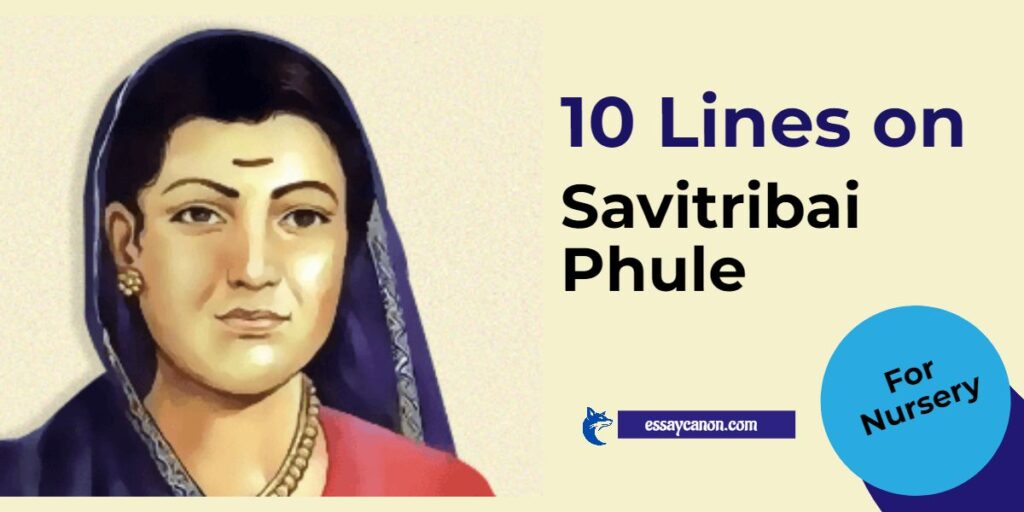Savitribai Phule was an important social reformer from Maharashtra. She is credited with starting the first school for girls in India. She also worked to abolish the cruel practice of sati.
Savitribai Phule was a great champion of women’s rights and education. Her work has inspired subsequent generations of social reformers and continues to influence the fight for equality in India today. Here are 10 lines on Savitribai Phule in english
Also read: 10 lines on sir syed ahmed khan
10 Lines on Savitribai Phule In English
- Savitribai Phule was an Indian social reformer.
- She fought against discrimination and advocated for the rights of women and lower castes.
- She is considered one of the most important figures in the social reform movement in India.
- Savitribai was born into a family of lower-caste farmers in 1831.
- She married Jyotirao Phule, a social reformer who was working to educate people of lower castes.
- Together, they founded the first school for girls from lower-caste families in Pune.
- Savitribai campaigned tirelessly for the rights of women and lower castes.
- Despite the challenges she faced, Savitribai persevered and made significant strides in improving the lives of those she fought for.
- Savitribai legacy continues on after she left the world.
- She is remembered as a fearless leader who dedicated her life to fighting for justice.

Short Essay on Savitribai Phule In English
Savitribai Phule was an Indian social reformer who played an important role in the field of education for women and the lower castes. She is also credited with starting the first school for girls in India.
Born into a family of farmers, Savitribai was married off at the age of nine. However, she continued her studies and went on to become a teacher.
In 1848, she started a school for girls from lower caste backgrounds with the help of her husband Jyotirao Phule.
Savitribai was an advocate for the rights of women and the lower castes. She worked tirelessly to promote education and equality.
She passed away in 1897, but her legacy continues to inspire social reformers today.

